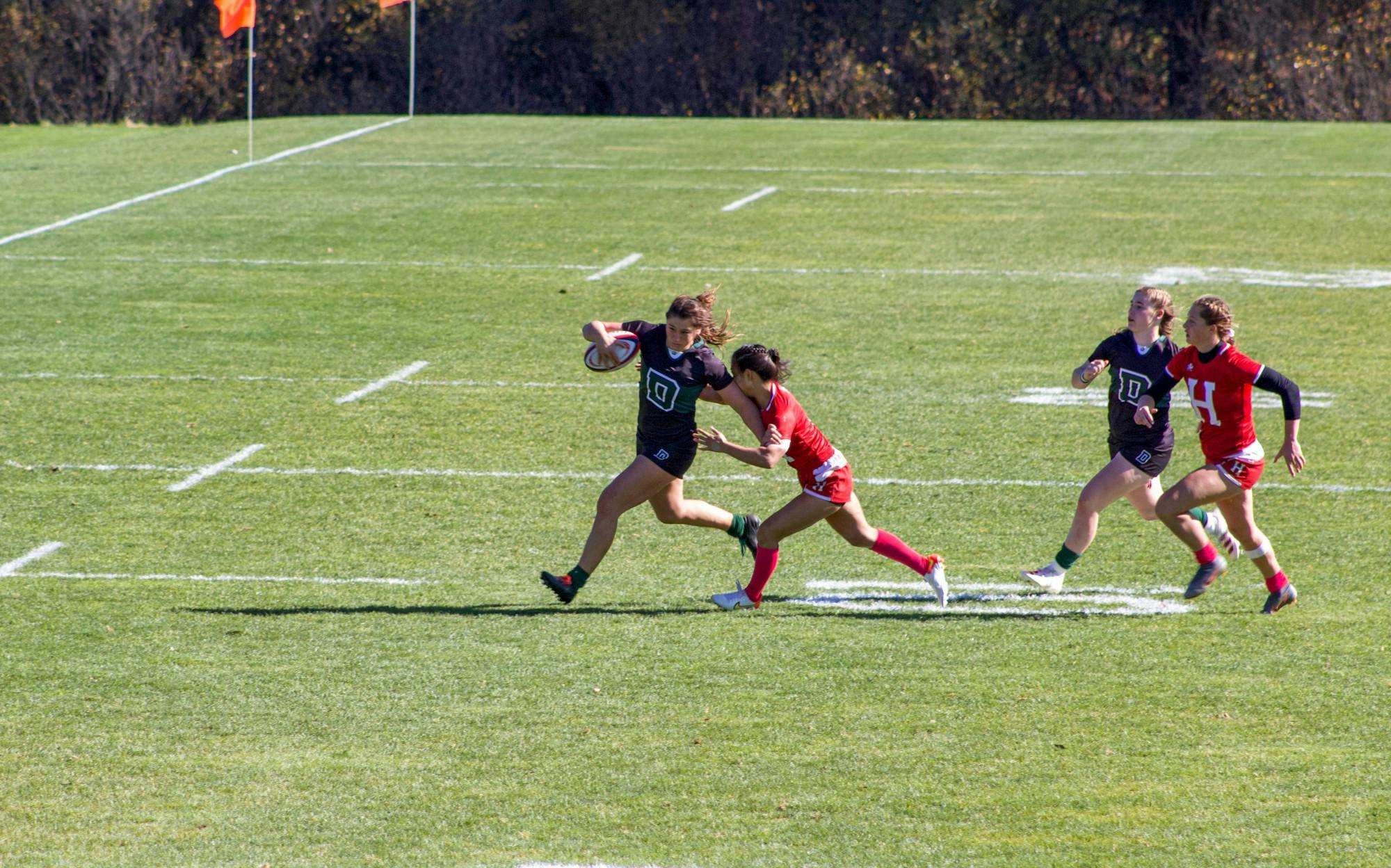On Nov. 21, the women’s rugby team won the National Intercollegiate Rugby Association national championship, defeating Army West Point on their home field 28-18. The Big Green finished the season with an undefeated record and took home the national championship for the second time in three seasons.
The championship game marked the second time that Dartmouth competed against Army in the fall. While Dartmouth secured the win in the initial meeting on Sept. 19, it was one of their closest games of the season with a score of 34-28.
Fullback Bailey Hand ’22 recalled Army’s second-half comeback during the September game and attributed it to the Black Knights’ impressive fitness conditions.
“One of the biggest things we did after that midseason game was that we conditioned all week, every week,” Hand said. “Our coaches pushed us to maintain that sharp level of play we demonstrated with Army, but for that whole 80 minutes.”
Conditioning played an important part of the Big Green’s road to success, and scrumhalf Sadie Schier ’25 said the team’s behind the scenes work allowed the players to evolve over the course of the season.
“The goals we set for ourselves are more specific and directed towards the game itself,” Schier said. “Thanks to [assistant coach Meya Bizer], we could reflect on our stats and implement this feedback in our practices.”
In the midst of fall term final exams, the Big Green journeyed to New York to play at Army’s home field — the farthest the team traveled all season. Center Emily Henrich ’22 recounted the odd circumstances and the charged energy before the team took the field for the national championship.
“Girls were taking exams in the hotel rooms the morning of the championship game, having our assistant coach proctor them,” Henrich said. “A big thing was knowing when to turn on for the rugby game and when we could turn off and focus on our schoolwork.”
Henrich, who played the national championship in her home state of New York, said that playing a rare night game added to the excitement of the matchup against Army.
“We never have night games, so playing under the lights on the base felt surreal,” Henrich said. “There were so many fans there, and even if all the fans weren’t necessarily cheering for us, the atmosphere made it so exciting.”
Henrich earned Dartmouth its first try of the national championship, and the Big Green jumped out to an early 7-0 lead. Army held strong after the early score, but the Big Green took a 14-3 lead into halftime. In the second half, the Big Green capitalized off the fast and flexible offensive strategy that it had been working on all season. Army was able to cut the lead to 21-13, but the Big Green eventually pulled away for a 28-18 victory.
“I think the championship game came down to a lot of defensive grit,” Henrich said. “It really wears down another team when they consistently get hit in a high-energy game, but our defense truly won the game for us.”
Also having captured the crown in 2018, the Big Green has now won the NIRA national championship twice in program history. Hand said that the team hopes to continue making its mark in the rugby world, not only by accumulating titles but also by reaching out to younger players.
“Developing high school programs in the local community for female athletes is a way I would love to see Dartmouth rugby expand and grow,” Hand reflects.
The Big Green is already looking towards competing for more national championships and will participate in specific strength training and conditioning in the winter before the smaller 7s rugby team plays competitively in the spring. While fall 15s competition is over for seniors, many will stay on to help the team grow for future competition.
“It is the expectation that seniors stay on because it is a huge opportunity for us to help develop younger players, especially with the walk-on culture of the team,” Hand says.




